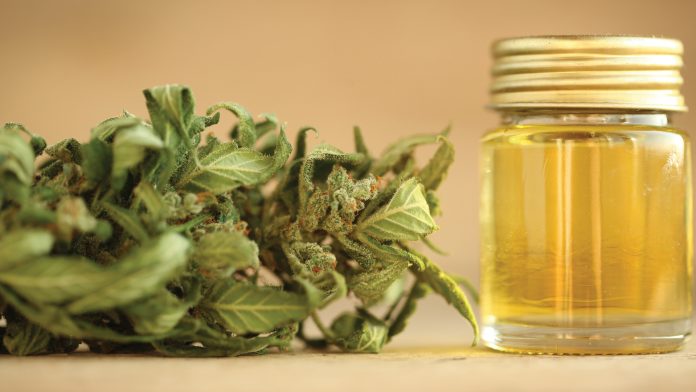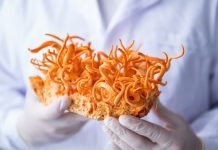
Discover CanaQuest’s strong commitment to research that enables it to develop safer medical cannabis products and formulations.
With 40+ countries around the world now having legalised the use of cannabis for medical purposes to some degree, news headlines are dominated by the potential size of the global market, along with the medical cannabis products that will come with it and the massive valuations of some of the nascent industry’s leaders. Less in the public view is the growing amount of medical research on cannabis that legalisation has unleashed around the world.
This development not only promises better alternative treatments to traditional pharmaceuticals for people struggling with a variety of health challenges, it’s also delivering a critical mass of clinical evidence as to the efficacy of medical cannabis to refute the political, scientific and other sceptics whose minds have been hardened by decades of anti-cannabis propaganda.
While Israel has long been recognised as the ‘capital of cannabis research’ since Professor Raphael Mechoulam of Jerusalem’s Hebrew University isolated and analysed some of the major psychoactive and non-psychoactive compounds in cannabis in the early 1960s, researchers in other countries are now working on a wide range of treatments, backed by both public and private financing.
In Canada, for example, several of the large, publicly listed cannabis companies are acquiring or investing in research-focused organisations in Europe and other regions. Other Canadian players have turned to the country’s own excellent universities, financing the work of dedicated research specialists in developing promising new treatments and the expensive clinical trials required to bring new medical products to market.
One of these is CanaQuest Medical Corp. Founded in October 2008 (and formerly known as Algae Dynamics Corp.), CanaQuest is a research-focused company based in Mississauga, Ontario, which develops health products and nutraceuticals utilising cannabis and botanical oil extracts including algae oils.
Currently, the company’s projects include the development of specialised products to deliver several cannabis-based formulations for use in the context of cancer in one case and for the development of novel pharmacotherapies for mental health in the other. What’s most intriguing is that these formulations mask the effect of the hallucinogenic component in cannabis (tetrahydrocannabinol or THC) by balancing it with other botanical compounds to minimise the euphoric and related side effects, while applying a high concentration of THC medication.
Canaquest’s-THC/botanical formulation treats ailments such as anxiety, depression, memory loss, psychosis and other mental disorders.
During cannabis treatment, the company’s formula can minimise the immediate negative effects of THC medication such as paranoia and anxiety. It still allows for the pleasant ‘high’ feeling associated with THC, which the researchers believe, based on research and preclinical trials, is beneficial for a person using it for depression or pain. The company also believes that the immediate euphoric effects are probably something the patient is looking for; however, by using CannaQuest’s THC formulation, the patient is protected from the long-term negative psychiatric side effects that often develop during long-term medical cannabis treatment.
Through its sponsored research programme, CanaQuest is working with teams at two leading Canadian universities on its unique cannabis formulations. It will use the research results to develop products that facilitate safer use of medical cannabis, especially medications with higher concentrations of THC by reducing or even eliminating the negative side effects of THC.
CanaQuest also recently announced a partnership with the Jamaican Medical Cannabis Corporation (JMCC), a Canadian-based company with operations in Jamaica. Under their agreement, JMCC will cultivate the premium, medical-grade cannabis for CanaQuest’s novel products, as well as manage the processing, product formulation, packaging warehousing and distribution of those products around the world.
“I like to think our real talent is finding superb partners,” said CanaQuest president Paul Ramsay, who, with co-founder, chairman and chief executive officer Richard Rusiniak, guides the company’s strategic and product development.
“We’ve both been inspired all of our lives by advances in medical research, but we’re not physicians or medical researchers. So, we found two of the best teams in the world working in areas we’re passionate about. And we’re excited about the promise of cannabis as a novel source of effective treatments. So, we found an excellent operational partner in JMCC to help us get our products to patients, which will let us continue to focus more on new research and related product development.”
Cannabis and mental health
A research team at Western University in London, Ontario, led by Dr Steven Laviolette of the Department of Anatomy and Cell Biology, and the Department of Psychiatry, is examining cannabis oil and its constituents in the context of anxiety, depression, schizophrenia and post-traumatic stress disorder (PTSD).
With over 12 years of related research behind it, Laviolette’s team is excited by the promise of the new formulations they’re developing. Clinical trial data using animal subjects has shown positive results.
“The clinical implications and commercial potential are highly significant,” Laviolette said. “Furthermore, since cannabis is commonly prescribed for a host of ailments, including pain, nausea, glaucoma, multiple sclerosis, osteoarthritis, our formulation will again be hugely significant for the non-mental health patient sectors as well.”
CanaQuest is now initiating human feasibility trials with an independent, third-party organisation, which will be followed by human trial programmes with two recognised clinics based on the successful results from the research, animal preclinical data from the lab, Western University and the human feasibility trial results. The first trial will focus on mental health (anxiety, depression) and the second will focus on pain management as an alternative to opioids.
Recently, the company filed for provisional patents on the first of its innovative formulations:
- CQ1 – a unique THC + botanical extract formulation that mitigates or eliminates negative side effects such as anxiety, depression, paranoia, cognitive/memory deficits during the THC treatment. CanaQuest expects this formulation can be applied in other treatments, e.g. chronic pain and an alternative to opioids, thus addressing addiction and dependence while providing effective pain management
- CQ2 – a CBD + select nutraceutical/dietary additive aimed at synergising the therapeutic properties of CBD in the treatment of anxiety, depression, schizophrenia, PTSD (chronic stress induced) and addiction
- CQ3 – an expansion of the research around the novel formulations utilising other cannabinoids in addition to THC and CBD. It is expected to unravel specialised applications for targeted therapies in specific mental health symptom clusters.
Cannabis and cancer
CanaQuest’s second sponsored research project, with the University of Waterloo in the Ontario city of the same name, focuses on medical cannabis products such as cannabis oil and its constituents for the supportive treatment of cancers, particularly those of the large bowel (colon), breast and prostate.
This research team is led by Dr Jonathan Blay, an oncologist and professor of pharmacy at the University of Waterloo and a leading expert whose 30-year career has resulted in the discovery of several novel anti-cancer approaches and their clinical application.
Working within his state-of-the-art cancer research laboratory, Blay and his team are developing cannabis-based formulations to enhance the efficacy of cancer treatments. The six-member team has skills and experience extending from molecular biology through to clinical research.
Their focus is not upon direct killing of the cancer cells but on modulating cellular behaviour so as to reduce the capacity of cells to form aggressive disease and/or spread throughout the patient (metastasis). Their cutting-edge work using preclinical models has identified formulations that have the potential to change cellular properties that contribute tothe progression of cancer. CanaQuest is now moving to apply this work to veterinary and human trials and to determining the best oral delivery approach.
Getting to here
So how did two business executives with successful careers behind them get to the place where they single-mindedly focused on developing new cannabis-based health treatments?
Rusiniak and Ramsay have known each other and worked together for decades. In fact, CanaQuest is the second company they’ve co-founded.
Earlier, they created Mississauga-based Cymat Corp (now Cymat Technologies), which became a world leader in aluminium foam manufacturing and earned a $150m (~€132.5m) market valuation by the time they stepped down in 2002. Together, they negotiated an aluminium foam manufacturing licence with Alcan International Ltd. and successfully commercialised the technology. They had also prepared and completed a $10m technology development programme with Industry Canada (Technology Partnerships Canada) and then helped to complete a $25m financing deal for the company with various financial institutions.
Rusiniak is the ‘science guy’. His early career included roles as project manager with Canada’s Long Manufacturing Ltd., as well as The Ontario Research Foundation (Ortech). He has also consulted on projects including NASA’s Zero Gravity Program, Atomic Energy of Canada’s Re-tubing Program, and Hawker Siddeley’s Bi-Level GO Train Modularization.
Ramsay is the business development whiz, who introduced and marketed several newly developed products to major corporate customers when they ran Cymat, and now manages CanaQuest’s commercial product development, business partnerships and investor relations.
They originally formed their new venture to explore the use of algae oils as an alternative to fossil oil products. They formalised a partnership with Professor Kirsten Mueller PHD, head of the Biology Department and the Canadian Phycology (the study of algae) Lab at the University of Waterloo. During this period, they turned to researching the health benefits of Omega-3 strains extracted from algae oil.
In 2016, they extended their research to examine the health benefits of cannabis oils as well as the synergy between cannabis oils and Omega-3, finding that the latter improves the functioning of the CB1 and CB2 receptors in the body’s endocannabinoid system, thus enhancing the effectiveness of cannabis treatments.
It’s been a big leap from aluminium foam manufacturing to medical cannabis. But such is the story of many entrepreneurs in the cannabis industry. At this point in their careers, Rusiniak and Ramsay are excited to be in a position to make a significant difference in the quality and extension of people’s lives by exploring beyond the established boundaries of medical science.
Medical cannabis products: CanaQuest’s research base
Medical cannabis refers to the use of cannabis and its constituent cannabinoids to treat disease or improve symptoms of conditions such as pain, muscle spasticity, nausea as well as other indications. Cannabinoids is a blanket term covering a family of complex chemicals, both natural and man-made, that bind with cannabinoid receptors (protein molecules on the surface of cells) and effect a wide number of responses.
Cannabinoid receptors in the human body are part of a system called the endocannabinoid system. This system produces chemicals called endocannabinoids, which also bind with cannabinoid receptors. Cannabinoid receptors are found in the brain and throughout the body. Scientists have found that cannabinoid receptors in the endocannabinoid system are involved in a vast array of functions in our bodies, including helping to modulate brain and nerve activity (including memory and pain), energy metabolism, heart function, the immune system and even reproduction.
While there are a large number of active cannabinoids found in cannabis, the two most common currently used for medical purposes are THC and CBD (cannabidiol).
CanaQuest’s proposed medical cannabis products, cannabis formulations and related nutraceutical products will generally utilise:
- Multiple combinations of plant strains to target medical ailments at the neurological level
- The use of cannabis extracted and concentrated cannabinoid oils which are known to provide targeted benefits together with botanical oils and Algae-Omega-3 essential fatty acids (DHA and EPA)
- Cannabis extracted and separated terpenes (aroma, additional medicinal benefits)
- Cannabis ‘whole plant’ oil – with natural concentrations of THC or CBD.
From research done in the field it has been concluded that THC acts on two types of cannabinoid receptors: CB1 and CB2. CB1 receptors are mainly found in the brain, peripheral nerves and nervous system, whereas CB2 are found both in the neurons and immune cells. Evidence suggests that THC helps alleviate symptoms suffered both by AIDS patients and by cancer patients undergoing chemotherapy, by increasing appetite and decreasing nausea. The other main ingredient is CBD, a non-psychoactive component of cannabis which accounts for more than 50% of the known therapeutic applications. A range of clinical studies indicate that CBD appears to relieve convulsion, inflammation, anxiety, nausea and short-term memory loss.
While THC has a strong binding affinity for both CB1 and CB2 receptors, CBD has no particular binding affinity. Instead, many of the therapeutic benefits of CBD are created through indirect actions. These actions include activating TRPV1 receptors. These receptors are involved in regulating pain, body temperature and inflammation. Based on their consultations with Dr Laviolettee, Ramsay and Rusiniak believe that these properties of THC may make it more desirable than CBD alone as it directly and more effectively treats several of these ailments while CBD only has an indirect effect. This is because THC is similar to endocannabinoids that have a similar structure to naturally occurring endocannaboids which are also naturally released by neurons in the human body to regulate the release of neurotransmitters.
While THC is known to have a positive impact in stabilising the release of neurotransmitters responsible for PTSD and pain, THC selectively targets molecular and neuropharmacological signaling pathways in both cortical and sub-cortical regions of the brain. In particular, the diminished functioning of GABAergic neurons in the prefrontal cortex (PFC) may lead to the loss of control of the PFC to regulate proper sub-cortical dopamine neurotransmission. The action of THC on CB1Rs can impair PFC-CB1R signaling and associated GABAergic functionality, leading to dysregulation of the normal prefrontal process. This results in an increase in the extracellular glutamate levels and lower GABA which normally inhibits dopamine production. Understanding this process provides the potential for the development of safer cannabinoid-derived formulations using THC and/or the development of novel THC formulations containing neuroprotectants to mitigate these neuropsychiatric risks.
Accordingly, CanaQuest’s primary formulation combines THC with specified quantities of a specific botanical extract. While both are naturally occurring products, this particular formulation is novel, creating a different neurological response preventing the negative side effects often caused by extensive cannabis treatment.
The specific botanical extract is a unique amino acid and is known to cross the blood-brain barrier. In addition, it may regulate the extracellular glutamine concentration in the neurons and by doing so may properly regulate GABA (gamma-aminobutyric acid, which is the major inhibitory neurotransmitter in the brain) and thus inhibit the release of dopamine. This same formulation could lead to THC replacing opioids since the primary addictive effects of opioids are believed to be due to a long-term ‘switching on’ of overactive dopamine. Therefore, CanaQuest’s formula is expected to be superior to THC alone (which does cause overactive dopamine similar to opioids), in that the formula prevents this potential side effect of THC.
THC as a replacement for opioids
According to Laviolette: “Since the primary addictive effects of opioids are believed to be due to causing a long-term ‘switching on’ of overactive dopamine, our formula would be predicted to be superior to THC alone (which does cause overactive DA similar to opioids), in that our formula prevents this side effect of THC.”**
JMCC a ‘like-minded partner’
The same ‘no boundaries’ mindset is what led the CanaQuest leadership team to reach beyond the big established players in Canada’s cannabis ecosystem to enlist the Jamaican Medical Cannabis Corporation as its production partner.
They’d met JMCC’s CEO Diane Scott at a cannabis industry event and immediately warmed to her business savvy (gained via global experience in highly regulated industries such as banking) and her decision to base her Toronto-headquartered company’s operations in Jamaica. She had explained that the Caribbean island had an ideal climate for growing cannabis sustainably, a long cultural tradition of using ‘ganja’ as medicine, and had been conducting medical cannabis research since the 1970s.
And, like many countries including Canada, Jamaica had struggled to control illicit marijuana growing and smuggling. So, following Canada’s example, the Jamaican government introduced legal reforms to license and regulate cultivation and processing of cannabis for medical use in late 2015. But as a developing country, it also needed foreign investment and expertise to develop its industry, create jobs and reinvigorate its struggling agricultural sector.
Unlike most local growers who were cultivating for the domestic market, Scott’s vision was to grow Jamaica landrace strains for export to the increasing number of countries legalising medical cannabis. She was also intent on producing products that met or exceeded international standards such as Good Manufacturing Practices for Pharmaceutical Products (GMP), Good Distribution Practices (GDP) and several ISO standards for areas such as quality, laboratory processes and environmental management.
She was also determined to ‘give back’ to the island, not only by creating well-paying jobs and the best training and skills-transfer programmes but also by involving small farmers who were finding the financial and knowledge barriers to entering the new industry insurmountable.
In 2019, JMCC will have nearly one million square feet under cultivation at various sites in Jamaica and cannabis extraction, testing, processing and packaging operations. It has also established stringent security and track-and-trace systems to comply with Jamaican law, as well as global distribution and warehousing in 26 locations around the globe. Together with its ‘customised’ micropropagation and cultivation programmes by which it grows to meet each customer’s needs for specific cultivars/cannabinoid profiles, it has positioned itself to provide a full business outsourcing solution to medical cannabis companies.
CanaQuest is one of JMCC’s first outsourcing customers. Under their agreement, JMCC will provide both the medical cannabis extract and a comprehensive range of scientific, technical, production, packaging, IT, global warehousing and distribution services to CanaQuest.
The arrangement leaves Ramsay and Rusiniak free to focus on what they like to do best: finding and funding promising, innovative medical research and developing new products based on that research to alleviate suffering and improve the quality of lives for people around the world.
Paul Ramsay
Co-Founder & President
CanaQuest Medical Corp
+1 416 704 3040
paul@canaquest.com
http://canaquest.com/
Please note, this article will appear in issue 9 of Health Europa Quarterly, which is available to read now.


















